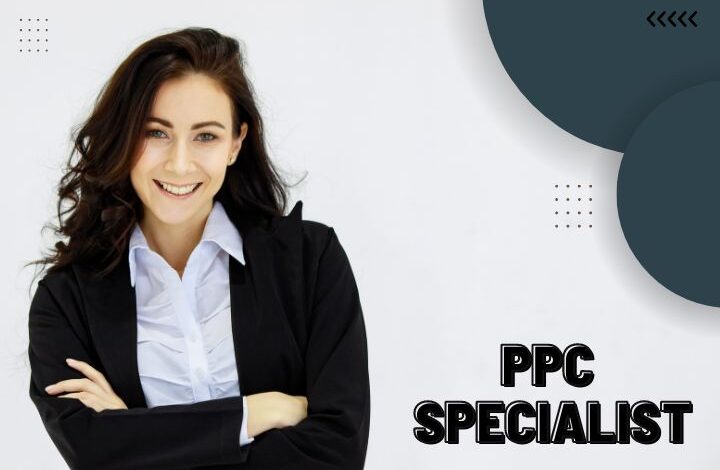9 Tricks Every PPC Specialist Should do to Optimize Google Ads
PPC Specialist Should Do To Optimize Google Ads

What are the first things that come to mind when you hear the word PPC? It might be something like pay-per-click, which is essentially how Google Adwords works. Paying to have your ad appear above all of the other search engine results when someone searches your keywords means you’ll end up with more business than if you didn’t pay anything at all! If you’re thinking about hiring a PPC specialist, here are 9 tricks for PPC that Specialists do to optimize your ads and make sure you get the most bang for your buck!
1) Use Different Ad Extensions
- Call-Only Campaigns: Increases your call conversion rates by showing only the phone number or call button on ads and not the ad headline, body copy, or URL.
- Sitelink Extensions: Allows you to link two ads together with a single click, so when someone clicks on one of your ads they are automatically redirected to the destination URL for that ad.
- Promoted Pins in Search Engine Result Pages (SERPs): An even better alternative than traditional text ads if there’s no room left in your budget! These can include up to 5 images, links, videos, and/or animations.
- Text Ad Placements: Have more space? Consider placing your text ads at the top of search results pages next to other sponsored search results—it is another opportunity for people to click through without clicking on an organic listing first!
2) Bid Manually For Each Keyword
Bidding is the act of entering a keyword and setting a price for your ad to appear when someone searches that word. To maximize the effectiveness of your campaign, you need to bid manually for each keyword rather than relying on auto-bidding. Auto-bidding can lead to overpaying for some keywords while undervaluing others.
As for a PPC Specialist, It’s best practice not to use broad matches unless you’re confident in the quality of your landing page.
Be specific about what your ad will do for potential customers – either promise something or warn against a danger – but don’t just describe it.
Include as much detail as possible on your landing pages so that visitors know exactly what they’ll get if they click through.
Track which ads work well by splitting them into different bidding groups so that more budget is allocated to those with higher conversion rates and less money is spent on the ones with lower conversion rates.
3) Why Do PPC Specialist Create Multiple Campaigns
It is important to create campaigns to manage your budget and create ads with different goals. These can be created under the campaign tab, which will make it easy for you to track your spending. You will also want the option of creating a campaign for each product or service you offer so that you can change your strategies depending on what you are trying to promote. Create Ad Groups- Once you have created campaigns, it’s time to create ad groups within those campaigns.
4) PPC Specialist Uses Negative Keywords Too.
Negative keywords are phrases for which you don’t want your advertising to appear. For example, if you’re a home improvement company and do not want your ads shown for searches such as roof repair or home repairs, you would add those terms as negative keywords.
Finding relevant keywords for your goods or services is the objective here, and you should target them appropriately. When targeting specific keywords, you’ll want to include negative keywords as well. Negative keywords will help prevent people from clicking on ads when they’re not looking for your products or services.
5) Avoid Exceeding CPC Goal
As a PPC Specialist, it is important not to exceed the CPC goal. For instance, if the target for a Facebook campaign is $0.30 per click, it is not wise to pay more than that amount. Keep in mind that the more money you spend on clicks, the less money you will have for other expenses, such as paying Facebook for sponsored posts and advertisements.
6) Have Fewer But Better Landing Pages
The first thing a specialist in PPC would do is create a landing page. One of the best investments you can make for your marketing plan is landing pages. For this reason, it’s important to avoid creating too many landing pages and instead focus on a few that you can truly optimize for performance. To do this, focus on building high-converting landing pages by:
- Keeping Landing Pages Short and Clear
- Creating an Effective Headline
- Making the Offer Compelling
- Building Trust with Social Proof
- Educating Visitors with Videos
- Providing Easy Navigation
- Optimizing Your Landing Page Content
- Testing Your Design
- Keeping Your Landing Page Simple
7) Focus on One Keyword per Ad Group
Write ads with specific call-to-actions that are tailored to your audience The same keyword should be used in the ad content, title tag, and URL of each landing page you create. Run a split test for any new ads you create or existing ads that you have made changes to. Use negative keywords in your campaign settings so that your ads will only show up on searches for relevant phrases rather than all of them
8) Convert Visitors into Leads/Sales by Targeting Landing Pages with Additional Information that Supports the Conversions
- Ensure your landing pages have a clear and concise call-to-action that informs visitors what you want them to do, for example: Sign up for our Newsletter! or Buy Now!
- Make sure your ads are relevant to the content on the landing page by providing additional information that supports the conversions, such as testimonials, reviews, and more.
- Use dynamic keywords in your ad groups so you can target users with specific intent (e.g., buy now).
- If a visitor clicks an ad without converting, follow up with them using remarketing (Google’s Display Network).
- Offer discounts to people who perform certain actions like liking the Facebook page or following you on Twitter.
9) A PPC Specialist Always Track All That Works and Ditch Everything Else
One of the most important parts of a campaign is figuring out which ads are working, and which ones are not. If you have an ad that’s not getting enough clicks, stop spending money on it and try a new one. But if you have an ad that’s getting clicks, but not converting well on your website, then you need to change the creative or stop bidding on those keywords to save money. What is the greatest strategy to prevent this from happening? Follow everything. Use google analytics for site traffic and google webmaster tools for tracking conversion rates. When you start a new campaign, set up conversion alerts so google will send you an email when people start converting from your ads. That way, if something goes wrong with conversions, you can take action immediately!
Conclusion
PPC specialists are a vital component of any marketing strategy. They help businesses generate more leads, get more customers, and ultimately make more money. However, that’s not all they do. A PPC specialist can be quite helpful in optimizing your campaigns and making the most of your cash.




